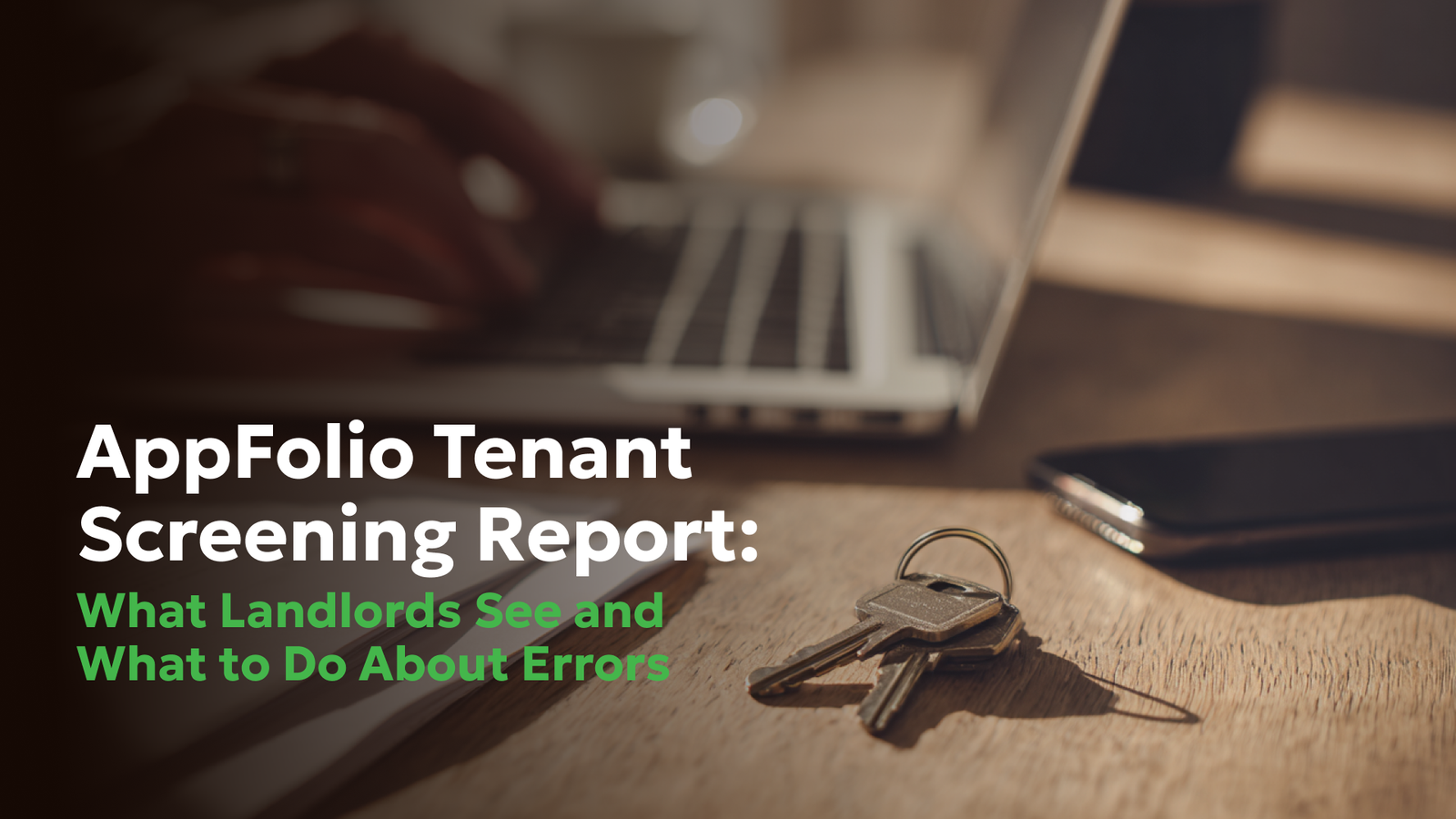Consumer Financial Protection Bureau: Tenant Screening Companies Put Speed Before Accuracy
- Blog
- Housing Background Check Errors
Consumer Financial Protection Bureau: Tenant Screening Companies Put Speed Before Accuracy

The CFPB rightfully notes that the result of these issues is that many people find it difficult to find affordable housing, which can have life-altering implications.
Background checks for tenants are becoming outdated, especially since they do not report rental history.
Consumer Financial Protection Bureau: Tenant Screening Companies Put Speed Before Accuracy
The Consumer Financial Protection Bureau (CFPB) is a federal agency that regulates, enforces, and creates federal laws protecting consumers. It often reviews current issues in the consumer market and their effect on individual consumers and on the financial markets in general. On November 15, 2022, the CFPB issued two reports concerning the tenant background reports industry. Following the rise in lawsuits filed against many of these tenant screening companies for their faulty tenant verification processes, the CFPB analyzed over 24,000 complaints about tenant background checks. It also used data from its own data analysis sources, academic research, and lawsuits filed under federal laws. It found grave errors by leading companies in the industry and a lack of compliance with federal laws, which can have serious consequences.
What Are Tenant Credit and Background Reports
When a corporate landlord receives an application for housing from a prospective tenant, they use a service that checks the tenant's background report. This report is different from a regular credit check, and some things that do not appear on a credit report appear on these more invasive reports. This service is issued by a company, and under federal law, that company is obligated to have processes in place that will ensure maximum possible accuracy of the files it produces and the information they contain. But the sheer number of files each of these companies generates makes it difficult for them to do so, which means mistakes happen. The result? Unsuspecting consumers apply for an apartment, expecting to be easily approved, having met all the requirements – only to be unexpectedly denied. If they inquire further and ask for the report that was generated about them, they find information that should not be in their tenant credit check. For example, some consumers have found criminal records that do not belong to them on their reports – some from a state they have never even visited. Others had their entire file mixed with someone else’s, so the other person’s bankruptcy or mortgage default appeared on their own tenant screening reports. It can also happen that outdated or expunged records appear. There are endless examples of the mistakes these companies make, but the result is that thousands of people’s lives get rerouted because of mistakes that should not occur.
What The CFPB Reports Say
The main issues raised in the two reports are as follows:
- Background checks for tenants are becoming outdated, especially since they do not report rental history. Rental payment history, arguably the most predictive factor regarding a tenant's propensity to pay their rent, is only reported in a small number of these tenant screening reports – between 1.7% and 2.3% of reports.
- Because corporate landlords and private equity firms are buying more and more properties, the demand for digital scoring of tenants has risen. That scoring is based on an algorithm, which is then used as a stand-in for a fuller, more holistic review of an individual. Typically, smaller landlords can view people in that way and factor in other aspects of a prospective tenant.
- While renters are the ones paying for the reports by paying the application fees, they often do not get access to these reports, especially not before the rental decision has been made. The worst part is, if there are mistakes on these tenant reports, correcting them can be a seemingly insurmountable task, usually only accomplished through a court case.
- Tenant screening companies prioritize speed and ease of the report over its accuracy.
- Renters have the right to receive what’s called an “adverse action notice” – but they often do not get it at all.
The CFPB rightfully notes that the result of these issues is that many people find it difficult to find affordable housing, which can have life-altering implications.
The CFPB maintains a hotline where you can initiate a complaint, either on their website https://www.consumerfinance.gov/complaint/ or by calling (855) 411-CFPB (2372). If you experience any inaccurate information on your tenant credit and background check, we can help you at no cost to you. Contact us today, and we will guide you through the process.


Daniel Cohen is the Founder of Consumer Attorneys. Daniel manages the firm’s branding, marketing, client intake and business development efforts. Since 2017, he is a member of the National Association of Consumer Advocates and the National Consumer Law Center. Mr. Cohen is a nationally-recognized practitioner of consumer protection law. He has a we... Read more
Related Articles




R
ONGS™You pay nothing. The law makes them pay.







